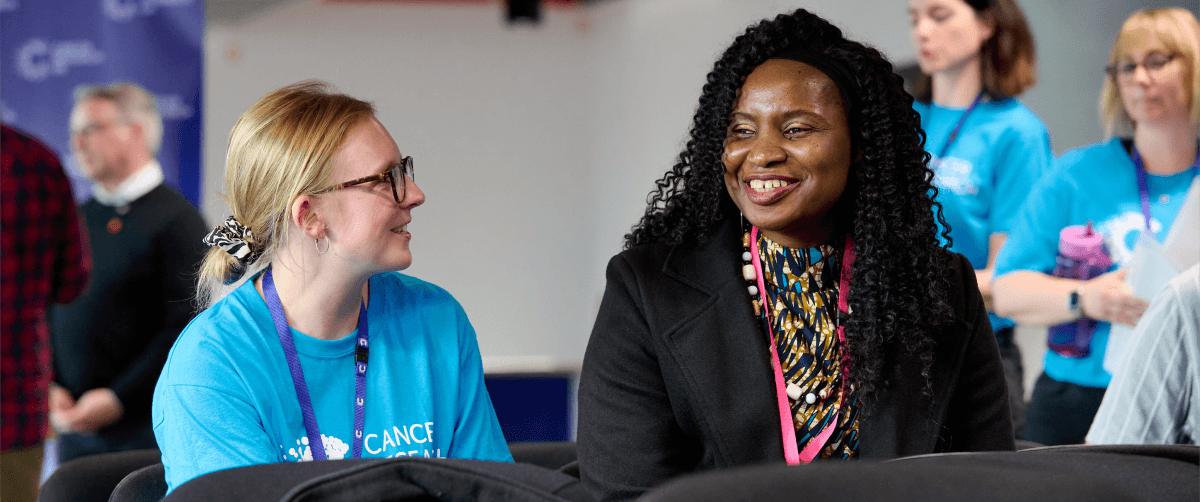
Within the Involvement Network at Cancer Research UK, we value diversity and we're committed to creating an inclusive space where everyone can be themselves and help shape our work. We actively encourage applications from people of all backgrounds, communities and cultures and believe that a range of views and experiences will help us represent all people affected by cancer. We want to include a diverse range of lived experiences of cancer in our Involvement Network so that we’re as inclusive and representative as possible in our work.
At Cancer Research UK, we work with people with lived experience of cancer (someone who has/had cancer and/or their loved ones). Sometimes, we’ll ask that you have specific knowledge or experiences when it’s relevant and essential to certain topics. However, most of the time you won’t need to have any prior:
knowledge of Cancer Research UK or the work we do
understanding of research or cancer
experience of patient and public involvement
We’re proud of what we’ve achieved so far in becoming more accessible, but we still have a way to go. The statement we include in all our opportunities highlights our aim to involve a diverse range of people and signpost support to help address barriers that might prevent someone from taking part.
EDI at Cancer Research UKEDI in our researchFactors such as your ethnicity, where you live or your first language all play a part in unfair and avoidable differences in health and cancer outcomes across the population.
Because of this, we need to make sure that people from the communities and backgrounds most at risk of poorer treatment outcomes are well represented in our work.
Learn more more about our cancer and health inequalities strategy
We know it’s vital to include people from a diverse range of backgrounds and people who may fall into multiple groups of underrepresentation. For example:
people with multiple disabilities
people from non-white and multi-ethnic backgrounds
people from lower socioeconomic backgrounds
people with rarer cancers
people who are older
peopple who live in the devolved nations
people who are both patients and carers
people who have been adopted so don’t have access to genetic history
people who identify as LGBTQIA+
This list is not exhaustive, there are lots of groups of underrepresentation. You may fit in a group not listed above.
Speak to us if you think you may need reasonable adjustments to participate in activities with us. For example, adjusting font sizes, sending hard copy reading materials in the post, the option to attend in-person meetings online and sending written materials in advance of meetings.